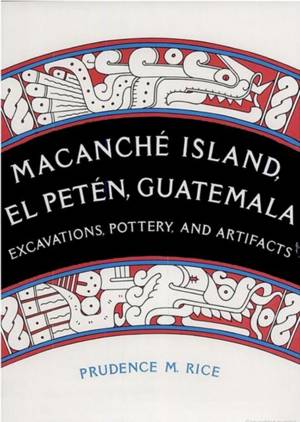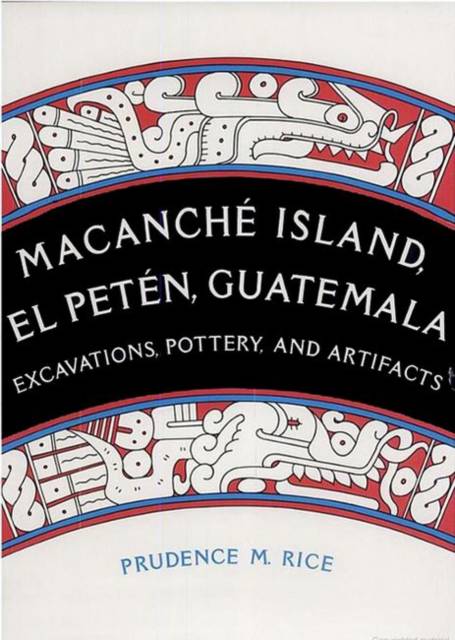
- Retrait gratuit dans votre magasin Club
- 7.000.000 titres dans notre catalogue
- Payer en toute sécurité
- Toujours un magasin près de chez vous
- Retrait gratuit dans votre magasin Club
- 7.000.0000 titres dans notre catalogue
- Payer en toute sécurité
- Toujours un magasin près de chez vous
Macanché Island, El Petén, Guatemala
Excavations, Pottery, and Artifacts
Prudence M Rice
Livre relié | Anglais
83,95 €
+ 167 points
Description
"This work makes a solid contribution to our understanding of a poorly known era in cenral lowland Maya prehistory.... It also provides stratigraphic evidence for phasing the subdivisions of the Postclassic era, offering important support for a detailed chronology of this era in the central lowlands--an unresolved and disputed issue until now." -- Robert J. Sharer, University of Pennsylvania "Rice has written the best and most comprehensive study of Postclassic pottery from the southern Maya lowlands. We have precious few windows into the panorama of late Maya history in the Peten, and the ceramics, although they can never tell us all we wish to know, give us some of the most detailed information we are ever likely to have on the centuries after the southern Maya collapse" -- E. Wyllys Andrews V, Tulane University In reconsidering the transition from the Classic to the Postclassic period of Maya civilization in the Department of Peten, Guatemala, Prudence Rice challenges traditional concepts of demographic collapse in the southern lowlands. Using painstaking reconstructions of research by William Bullard and her own work, Rice argues that the rural outpost of Macanache Island in Peten continued to support a population during and long after the Classic Maya collapse, and she uses stratigraphic and ceramic evidence to illuminate the transition. Rice places the rural outpost of Macanche Island within the larger geographical context of the Yucatan peninsula during the Postclassic period. She weaves together analyses of the artifacts, largely ceramics, of Bullard's 1968 excavation with the artifacts found in later excavations focused on the Peten lake basins. Typological descriptions of the pottery are supplemented by analyses of function, slip, and paste and by discussions of locally manufactured and imported material.
This important book on a little-known era and site of Maya culture enables us to reconstruct and understand the role of rural outposts of a powerful civilization during a time of economic and political chaos. It greatly advances our understanding of the minutiae of change as well as the larger patten that they form. Prudence M. Rice is Associate Vice Chancellor for Research at Southern Illinois University
This important book on a little-known era and site of Maya culture enables us to reconstruct and understand the role of rural outposts of a powerful civilization during a time of economic and political chaos. It greatly advances our understanding of the minutiae of change as well as the larger patten that they form. Prudence M. Rice is Associate Vice Chancellor for Research at Southern Illinois University
Spécifications
Parties prenantes
- Auteur(s) :
- Editeur:
Contenu
- Nombre de pages :
- 283
- Langue:
- Anglais
Caractéristiques
- EAN:
- 9780813008387
- Date de parution :
- 20-08-87
- Format:
- Livre relié
- Format numérique:
- Genaaid
- Dimensions :
- 152 mm x 229 mm
- Poids :
- 966 g

Les avis
Nous publions uniquement les avis qui respectent les conditions requises. Consultez nos conditions pour les avis.






